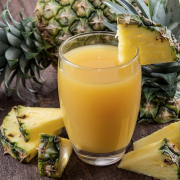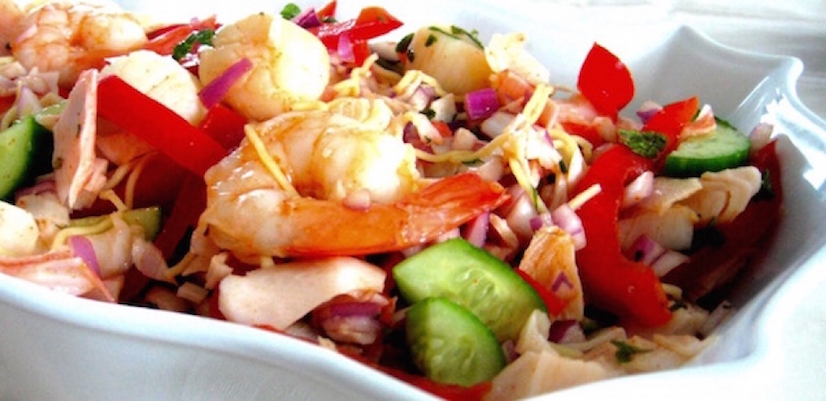A while back I wrote an attention-grabbing article entitled “Is Eating Pork Good or Bad for Your Health?” Since this article was originally published dozens of people have written me with counterarguments largely based on prevailing misconceptions and generalizations about pork.
Compelled to address some of them, I decided to revisit the issue of pork consumption and in doing so provide a fresh perspective on the potential health benefits.
For starters, there’s the common argument that eating pork increases the risk of developing trichinosis and taeniasis. These are two distinct parasitic infections that can result from eating raw or undercooked pork contaminated with either roundworms or tapeworms.
While trichinosis (roundworm infection) is exclusive to pork consumption, taeniasis (tapeworm infection) is not, as ingesting raw or undercooked beef is also associated with increased risk.
Related Article: Red Meat: Nutritional Friend or Foe?
Nevertheless, simply avoiding contact with raw and undercooked meats can prevent both. This is why it’s always important to thoroughly cook your meats to safe temperatures. Equally important is that you avoid contaminating any and all cooking utensils and surfaces with raw meats.
It’s as simple as that!
Another argument against pork consumption relates to its high content of cholesterol, which is indeed one of the most widely touted dietary boogeyman these days. In spite of widespread belief, dietary cholesterol contributes very little, if any, to the development of high-cholesterol, heart disease and related health problems.
Related Article: Did You Get the Memo? Dietary Cholesterol Is All Good!
Aside from this misnomer, lean cuts of pork (tenderloin, loin center steak and boneless shoulder blade chops) actually contain less cholesterol than most meats. In fact, a single serving of top sirloin steak or chicken breast houses an average of 85 milligrams of cholesterol while a serving of pork tenderloin contains less than 75.
Again, I’m talking about “lean cuts” here as opposed to fattier varieties like bacon, ham, ribs, pork chops, and sausages. When lean cuts are consumed in moderation pork is quite wholesome, as it’s a rich source of many key nutrients that promote overall good health.
Related Article: Are You Eating Too Much Turkey?
When lean cuts are consumed in moderation pork is quite wholesome, as it’s a rich source of many key nutrients that promote overall good health.
For instance, due to generally high levels of niacin (vitamin B3), consuming lean cuts of pork in moderate amounts can actually support healthy cholesterol levels. Niacin is an important water-soluble micronutrient that bolsters fat metabolism.
When coupled with a nutritious diet, niacin has been shown to reduce triglycerides (fat in the blood) and LDL (“bad”) cholesterol, while increasing HDL (“good”) cholesterol. Just three ounces of pork houses over 50% of a day’s worth.
Related Article: Micronutrients: The Nutritional Building Blocks for Good Health
And then there is thiamin, which is pork’s most valuable attribute.
Also known as vitamin B1, it is a primary regulator of energy production, which is critical for proper functioning of all the systems in the body (especially the nervous, muscular, and cardiovascular systems). Remarkably you can obtain over 50% of a day’s worth of thiamin by eating a small shoulder blade chop.
In addition and unbeknownst to many, you can also get a substantial antioxidant boost by consuming pork.
Notably it contains sizeable amounts of zinc and selenium, which are two of the only three minerals classified as antioxidants. Zinc is critical for normal development and function of white blood cells and wound healing while selenium supports healthy thyroid function and amplifies the beneficial effects of other antioxidants like vitamins C and E.
Related Article: Selenium: A Powerful Antioxidant You’ve Probably Never Heard Of
Besides its rich supply of health-promoting vitamins and minerals, pork is a powerful weight loss food. A three-ounce serving houses just 125 calories and a whole lot of high-quality protein to go with it. Adequate protein consumption is essential for building and maintaining muscle.
The more muscle you have, the higher your metabolic rate. This essentially means that you’ll burn more calories and lose more weight.
Related Article: The Important Role of Metabolism in Weight Loss
Pork also offers a rich dose of vitamin B6, which specifically supports the synthesis of protein from amino acids. Protein synthesis further promotes muscle maintenance and growth thereby preserving the metabolic rate and encouraging weight loss. The combination of protein and vitamin B6 housed in pork is also especially beneficial if you regularly engage in resistance training.
In spite of its overall nutritional value, many people simply don’t eat pork due to social, cultural and religious reasons, which is perfectly fine. This article is primarily directed towards those who may wish to abstain out of a presumption that it is unhealthy.
At the end of the day, eating pork can present problems when it is inadequately cooked, poorly chosen, and consumed in excess.
To reap the full health benefits of pork, it’s important to choose only lean cuts and limit your intake to no more than 1-2 three-ounce servings per week. In addition, when preparing pork, be sure to trim any visible fat prior to cooking it and remove any remaining fat before eating it.
RECIPE: Ground Pork with Manzanilla Olives, Minced Pimientos, and Capers
At the end of the day, eating pork can present problems when it is inadequately cooked, poorly chosen, and consumed in excess.
Now, if you don’t have the discipline to regulate your intake of pork this way, you may find it most beneficial to fully abstain from eating it. But, that’s a personal choice.
So hopefully I’ve provided some valuable insights about the nutritional value and health benefits of pork for those of you who may be on the fence about removing it from your diet. At the end of the day, it’s better to arm yourself with the real facts and use them to preferentially guide your desired eating behaviors as opposed to hanging on the potentially biased perspectives of others.







